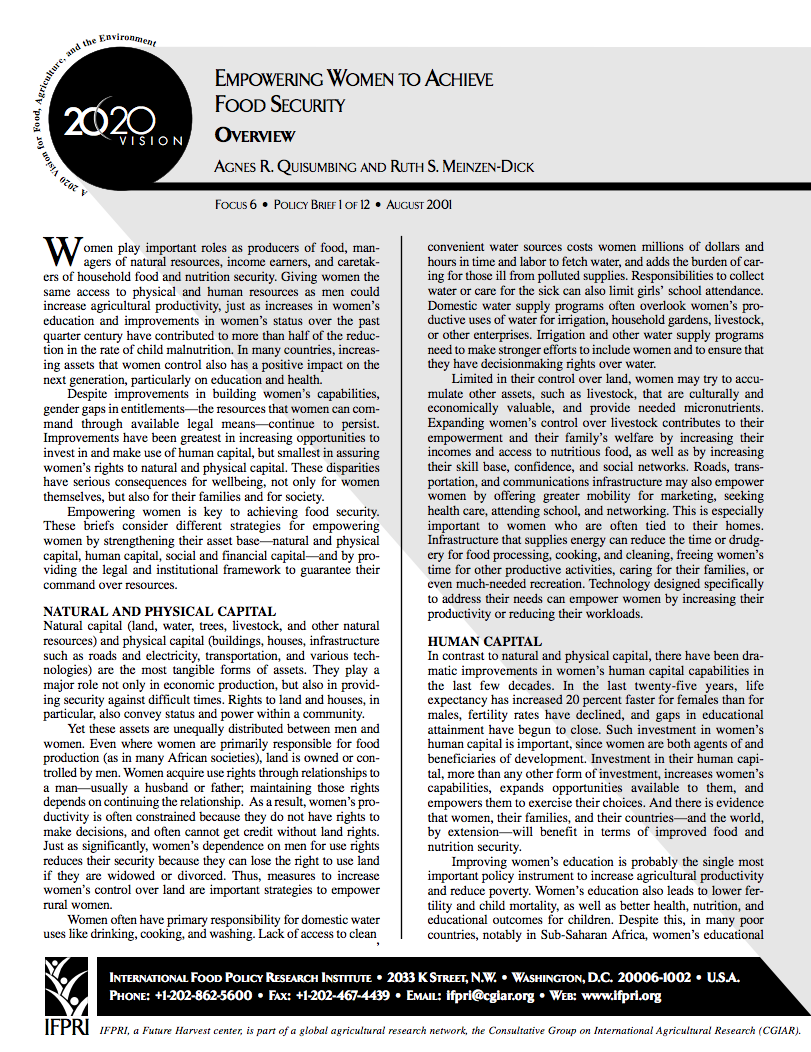Empowering women to achieve food security
Women play important roles as producers of food, managers of natural resources, income earners, and caretakers of household food and nutrition security. Giving women the same access to physical and human resources as men could increase agricultural productivity, just as increases in women’s education and improvements in women’s status over the past quarter century have contributed to more than half of the reduction in the rate of child malnutrition.









